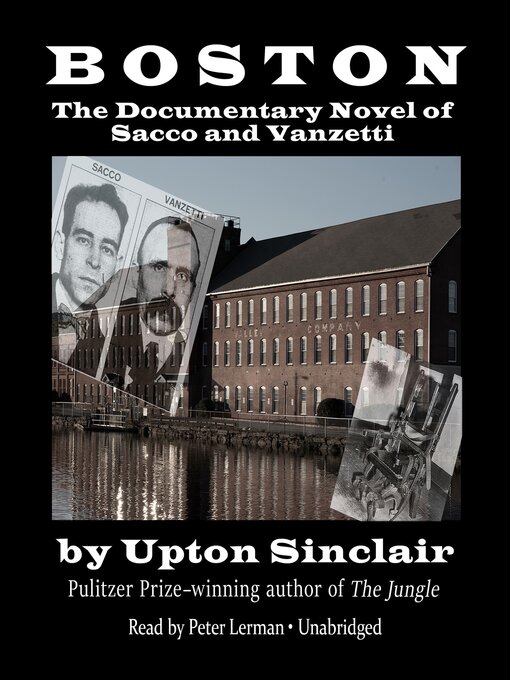Boston is the novelized account of the Sacco and Vanzetti affair, which rocked the nation—and the world—in the 1920s. Two working-class Italian immigrants, both associated with radical political beliefs, stood accused of the murder of two armed guards during the commission of a payroll robbery.
There was scant (and often conflicting) evidence of their guilt. However at that time the nation was racked with a heightened fear of the "Red Menace" in the wake of the rise of Socialism and Communism in Europe and the triumph of the 1919 revolution in Russia. Anarchists stood accused of having committed terrorist bombings in America and both Sacco and Vanzetti had been members of Anarchist groups, though neither man had any history of crime or violence.
Many Americans at the time harbored irrational fear and hatred of the new waves of immigrants, mostly from Eastern and Southern Europe. They came to America to leave countries and economies left in ruins by the Great War and fill the jobs in America's booming industries. They looked different than previous waves of immigrants and spoke unfamiliar languages.
The arrest and conviction of Sacco and Vanzetti for the robbery and murders was seen by millions as driven mainly by the prejudice against them as Italian immigrants and political radicals—rather than actual evidence of their guilt. Millions of others believed just the opposite. The men were executed by the Commonwealth of Massachusetts in August of 1927.
Sinclair's novel weaves actual historical facts, stories, and persons with persons and events he created for the purpose of telling an interesting story, with more and deeper historical context. He twice interviewed Vanzetti during his imprisonment. He refrains from coming to any specific conclusion regarding guilt or innocence and focuses more on the blatantly unfair trial and the climate of fear and prejudice which surrounded the public debate.

